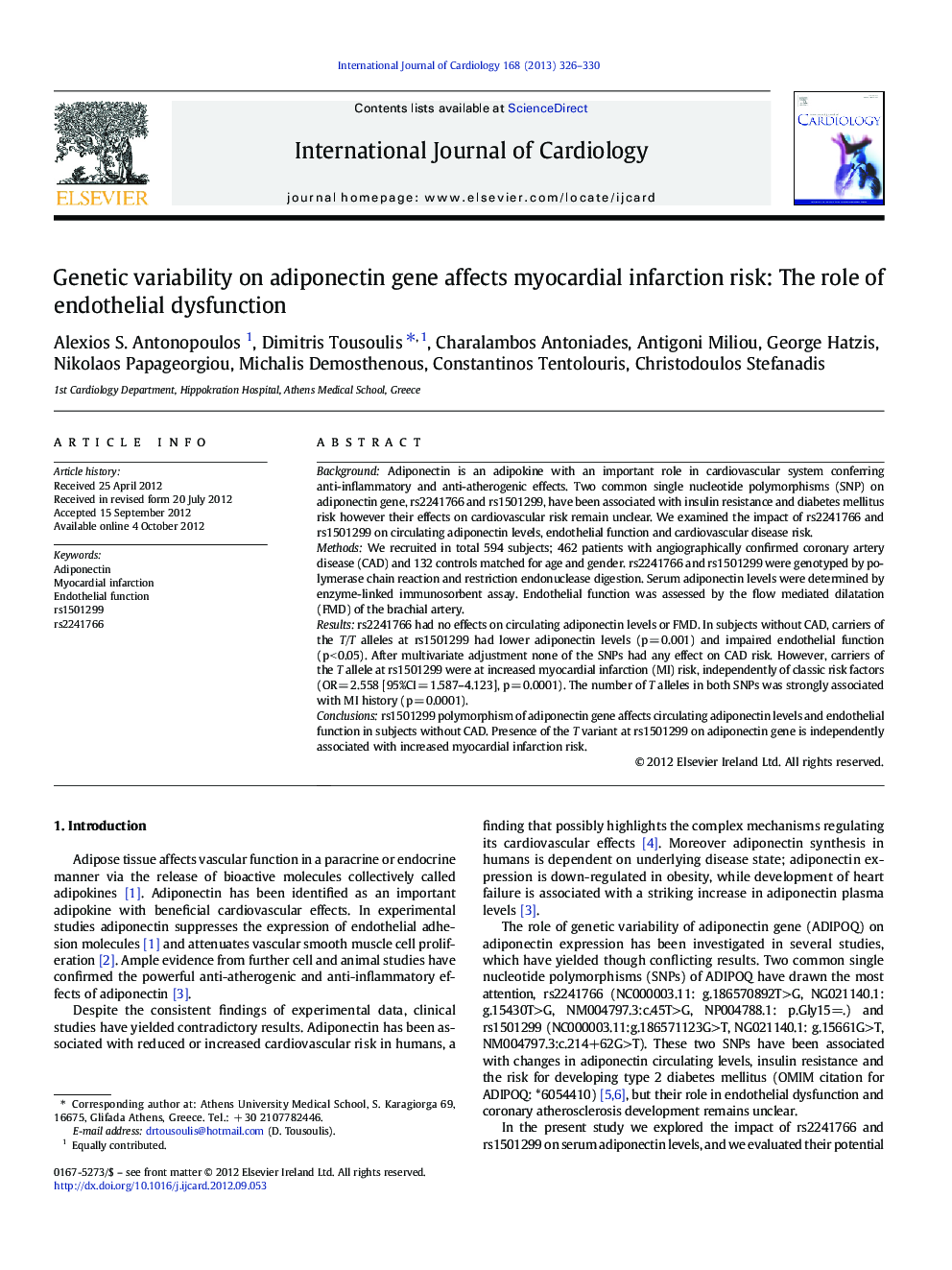| Article ID | Journal | Published Year | Pages | File Type |
|---|---|---|---|---|
| 5976665 | International Journal of Cardiology | 2013 | 5 Pages |
BackgroundAdiponectin is an adipokine with an important role in cardiovascular system conferring anti-inflammatory and anti-atherogenic effects. Two common single nucleotide polymorphisms (SNP) on adiponectin gene, rs2241766 and rs1501299, have been associated with insulin resistance and diabetes mellitus risk however their effects on cardiovascular risk remain unclear. We examined the impact of rs2241766 and rs1501299 on circulating adiponectin levels, endothelial function and cardiovascular disease risk.MethodsWe recruited in total 594 subjects; 462 patients with angiographically confirmed coronary artery disease (CAD) and 132 controls matched for age and gender. rs2241766 and rs1501299 were genotyped by polymerase chain reaction and restriction endonuclease digestion. Serum adiponectin levels were determined by enzyme-linked immunosorbent assay. Endothelial function was assessed by the flow mediated dilatation (FMD) of the brachial artery.Resultsrs2241766 had no effects on circulating adiponectin levels or FMD. In subjects without CAD, carriers of the T/T alleles at rs1501299 had lower adiponectin levels (p = 0.001) and impaired endothelial function (p < 0.05). After multivariate adjustment none of the SNPs had any effect on CAD risk. However, carriers of the T allele at rs1501299 were at increased myocardial infarction (MI) risk, independently of classic risk factors (OR = 2.558 [95%CI = 1.587-4.123], p = 0.0001). The number of T alleles in both SNPs was strongly associated with MI history (p = 0.0001).Conclusionsrs1501299 polymorphism of adiponectin gene affects circulating adiponectin levels and endothelial function in subjects without CAD. Presence of the T variant at rs1501299 on adiponectin gene is independently associated with increased myocardial infarction risk.
